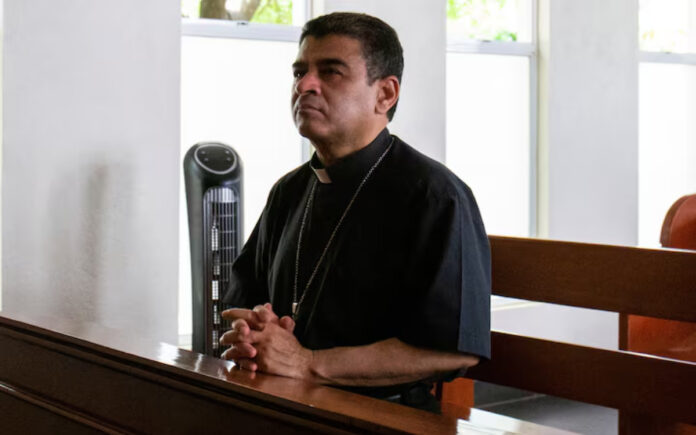Managua: Nicaragua’s government launched a blistering attack on the Vatican on Sunday, branding it “depraved” and “pedophile” just days after exiled Bishop Rolando Álvarez appeared on Catholic television channel EWTN. Álvarez, one of the most vocal critics of President Daniel Ortega, gave his first interview since his release from detention in January.
Why It Matters
The Ortega administration’s remarks mark one of its most aggressive denunciations of the Vatican to date, further straining relations with the Catholic Church. The government has repeatedly accused Catholic institutions of attempting to destabilize Nicaragua, leading to the expulsion of nearly 50 priests and nuns.
Analysts warn that the rising hostility could increase pressure on Catholic clergy still in the country, making reconciliation with the Holy See increasingly unlikely.
Official Statement
In its statement, Nicaragua’s Foreign Ministry referred to the Vatican as the “depraved, pedophile Vatican State,” accusing it of aligning with “forces of darkness, barbarism, genocide, and evil.” The ministry further asserted that the Vatican was “very much guilty of crimes against humanity.”
Context
Bishop Álvarez’s February 7 television appearance marked his first public remarks since being freed after more than a year in detention.
Reflecting on his ordeal, he expressed gratitude for his recovery and hope for Nicaragua’s future, stating, “In the diaspora, faith always grows, and hope gets stronger.”
Also Read | Legacy Chip Battle: China’s Rise Threatens Taiwan’s Dominance
Álvarez was arrested in 2022 in one of the most high-profile cases of Nicaragua’s crackdown on dissent, which began after the 2018 protests that left over 350 people dead and triggered international condemnation over human rights violations.
Also Read | Australia’s Global Lithium in Showdown Over Alleged Chinese Influence
Response from the Vatican
Pope Francis has consistently called for peace and dialogue in Nicaragua. In December, he urged Catholics to pray for the country, emphasizing the need for a “path of respectful and constructive dialogue.”



